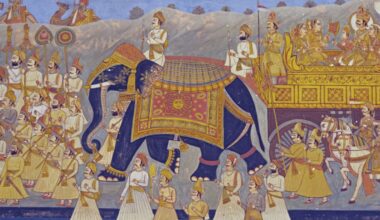The longevity and resilience of Hinduism as one of the world’s oldest religions are a testament to its depth, adaptability, and cultural significance. Spanning thousands of years, Hinduism has endured various societal shifts, invasions, and transformations, yet it remains a vibrant and influential faith. Let’s delve into the reasons behind the endurance and longevity of Hinduism, exploring its multifaceted aspects that have allowed it to thrive through the ages.
Ancient Roots and Cultural Adaptability
Hinduism’s origins trace back to ancient civilizations in the Indian subcontinent. Its foundation lies in the Vedas, ancient scriptures that encapsulate philosophical insights, rituals, and spiritual teachings. The adaptability of Hinduism allowed it to absorb and assimilate diverse beliefs, practices, and customs over millennia. This inclusivity fostered a rich tapestry of traditions, sects, and philosophies, making Hinduism more a way of life than a rigid dogma.
Spiritual Plurality and Diversity
Central to Hinduism is its recognition of diverse paths to spirituality. The faith accommodates various schools of thought, such as Advaita Vedanta, Bhakti, Karma, and more. This spiritual plurality allows individuals to choose a path that resonates with their beliefs and inclinations, fostering a deeply personal and diverse religious experience.
Concepts of Karma, Dharma, and Reincarnation
Fundamental to Hinduism are the concepts of Karma (the law of cause and effect), Dharma (one’s duty or righteous conduct), and Reincarnation (the cycle of birth and rebirth). These concepts provide a moral framework and offer explanations for the complexities of life, death, and the universe. They resonate with individuals seeking philosophical and ethical guidance, contributing to the endurance of Hindu thought.
Influence on Cultural Practices and Daily Life
Hinduism’s influence extends beyond religious rituals, permeating into various aspects of daily life and cultural practices. From festivals like Diwali, Holi, and Navaratri to practices such as yoga, meditation, and Ayurveda, Hinduism’s cultural impact is vast and has resonated globally, attracting followers and enthusiasts worldwide.

Flexibility and Evolution
Throughout its history, Hinduism has shown remarkable adaptability and evolution. It has assimilated diverse beliefs, absorbed regional traditions, and accommodated new ideas without losing its core essence. This flexibility has allowed Hinduism to evolve with changing times, ensuring its relevance across centuries.
Preservation Through Oral Tradition and Textual Heritage
Hinduism’s preservation owes much to its oral tradition and rich textual heritage. The Vedas, Upanishads, Mahabharata, Ramayana, and Puranas are repositories of knowledge, myths, legends, and philosophical teachings. The continual recitation, memorization, and transcription of these texts have safeguarded the essence of Hindu thought.
Symbolism, Iconography, and Rituals
The use of symbolism, elaborate iconography, and rituals in Hinduism serves as a medium for spiritual expression and connection. Deities, symbols, and rituals represent cosmic truths, allowing devotees to connect with the divine and experience a sense of transcendence, fostering continuity in practice and belief.
Social and Cultural Integration
Hinduism’s ability to integrate with various social structures and cultural practices has contributed to its longevity. The religion has adapted to diverse societal changes while maintaining its foundational principles, harmonizing with regional customs and beliefs.
Global Outreach and Modern Relevance
In contemporary times, Hinduism’s teachings, practices, and philosophies have gained global recognition and appeal. The spread of yoga, meditation, Ayurveda, and spiritual teachings has resonated with people seeking holistic well-being, contributing to the faith’s contemporary relevance and longevity.
Hinduism’s endurance over millennia can be attributed to its intrinsic flexibility, diverse spiritual paths, cultural adaptability, philosophical depth, and societal integration. Its ability to evolve, absorb, and transcend cultural boundaries has allowed it to resonate across generations and continents. The profound impact of Hinduism on spirituality, philosophy, culture, and daily life continues to foster a sense of connection and meaning for millions worldwide, ensuring its enduring legacy in the tapestry of world religions.










